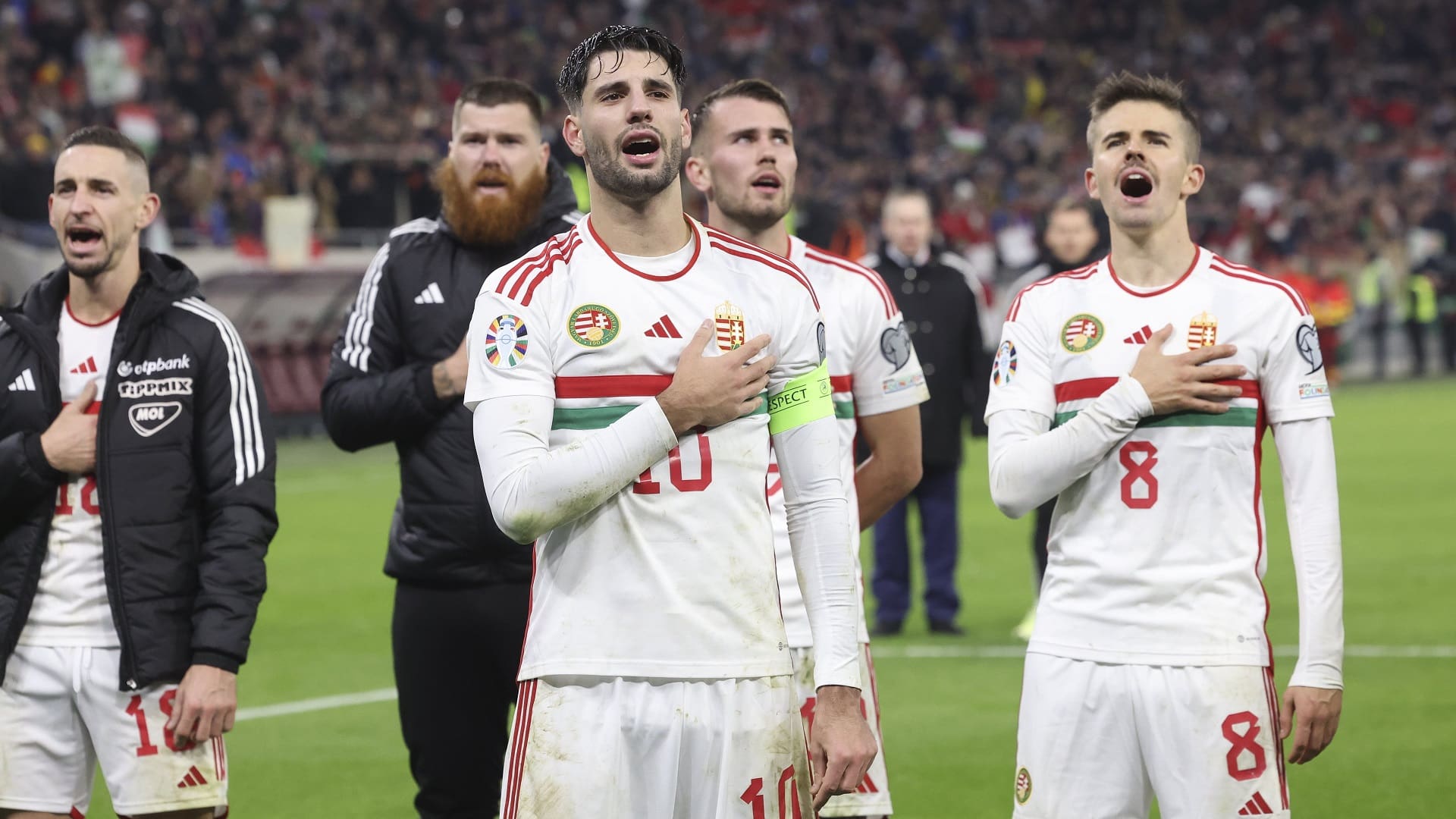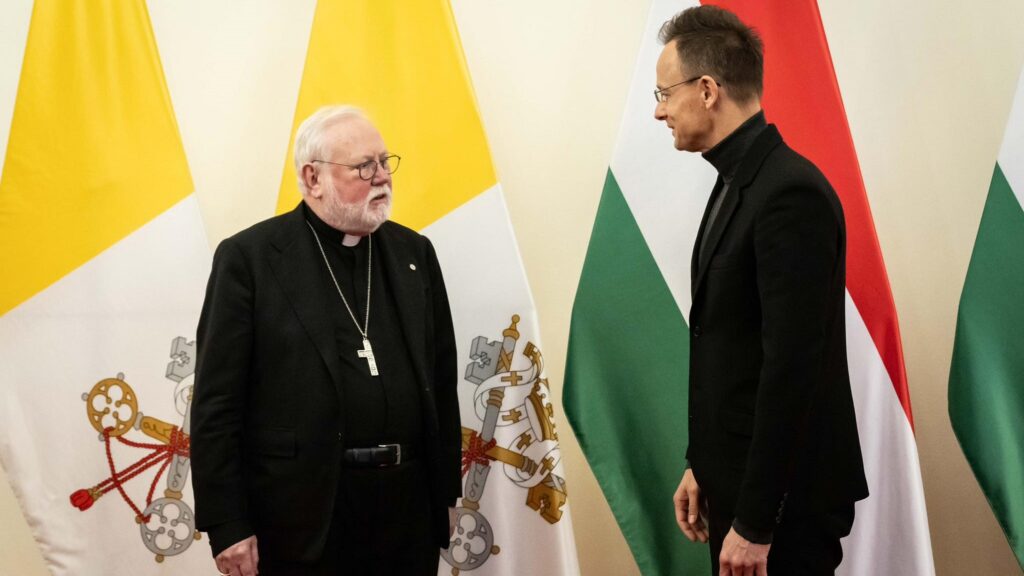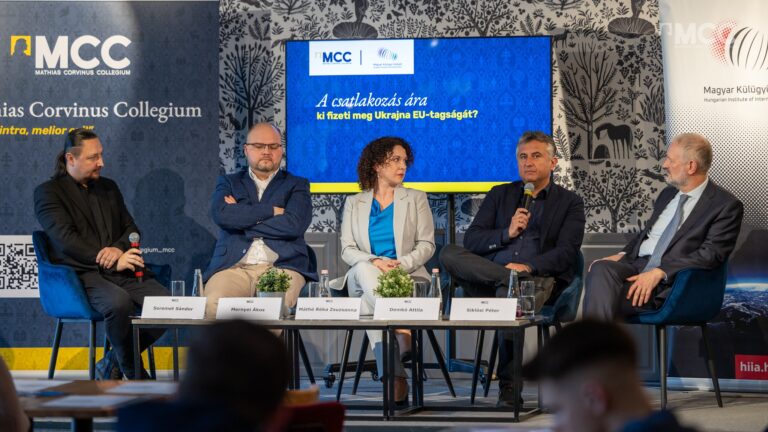On Sunday, 19 November, the Hungarian National Team ended their Euro 2024 qualification run with a 3–1 victory over Montenegro at home. With that, they finished on top of their qualification group, unbeaten, with five wins and three ties. Hungary have made their way for their third consecutive European Championship, unprecedented for the nation, despite its rich footballing history which includes two lost World Cup finals.
The National Team managed to clutch the qualification one round before the group stage was even over—however, they did so with a last-minute own goal, tying the game against Bulgaria, an underwhelming performance against the dead-last finishers of the group.
Hungary put on a much better showing against Montenegro in front of yet another packed house at the Puskás Arena at home. While Montenegro took the lead in the first half, Hungary seemed to be in control of the game throughout, and ended up turning the scoreline around and getting a 3–1 victory.
While the general public is overall excited about seeing their National Team at the Euros again, there has also been a small minority of naysayers who try to minimize the achievement.
It is true that Hungary’s last three appearances at the Euros came about along with the number of participants in the tournament being raised from 16 (which was in place since 1996) to 24. This also gives context to why Hungary made it to the competition so few times in the decades when the National Team was much higher ranked in the world—the first-ever European Championship hosted by the Soviet Union in 1960, for example, only featured four teams from Europe. Still,
winning the qualifying group would have resulted in qualification even with a 16-team line-up.
Also, in 2016, when Hungary managed to get to the Euros for the first time in 44 years, they actually advanced into the Round of 16 in the tournament, after winning their group (even coming in ahead of the eventual winner Portugal).
For further context on the significance of the achievement, please note that a number of nations with significant footballing history have failed to qualify, despite 24 out of 54 (discounting the banned Russia) UEFA nations making it to the tournament. The teams that failed to qualify include Norway, who have one of the greatest talents of our time, Erling Haaland on their squad, Euro 2004 winners Greece, Sweden, Poland, Bosnia, and either Wales or World Cup silver medallist Croatia, depending on the last round in Group D yet to be played. Please note that three spots are still available in the tournament through playoffs.
The loudest of the contrarians rooting against their own National Team was László Bartus, editor of the US-based Hungarian news site Amerikai Népszava. He took umbrage with head coach Marco Rossi calling out people in the country wishing failure upon the National Team. In his opinion piece, he argued that the National Team is just the propaganda apparatus of the ‘Orbán regime,’ and therefore it is very reasonable to root against it. ‘Hungarian football is against us, not for us,’ he wrote.
Dominik Szoboszlai Shines as National Team Captain
Much to Mr Bartus’s chagrin, however, he did not have many moments to enjoy the failure of Hungarian football this year.
In fact, the Men’s National Team remained unbeaten for the whole of 2023,
winning five and tying three qualifiers, as well as winning and tying one international friendly each.
Hungary’s total unbeaten run has now stretched to 12 games, which coincides with the time Dominik Szoboszlai took over the captain’s armband from the retiring Ádám Szalai. That’s right, Hungary have never lost a single game since Szoboszlai has been captaining them.
His impact on the team is impossible to overstate. Against Bulgaria, the game where Hungary secured the qualification, the team scored from two of his set-pieces: Martin Ádám headed Szoboszlai’s free kick into the net in the tenth minute, then Aleks Petkov of Bulgaria headed an own goal into his own net also after a Szoboszlai free kick, in the 97th minute—which was Hungary’s last chance to equalize.
Against Montenegro, he dribbled past three defenders and then blasted the ball in the low far corner, levelling the score line again. Two minutes later, he scored again (this time, he had a much easier job, he got one-on-one with the Montenegro goalkeeper after a great pass from Martin Ádám). In additional time, Ádám Nagy put away the rebound after Szoboszlai’s free kick was saved by the Montenegro goalkeeper.
Szoboszlai első gólja Montenegró ellen// MAGYARORSZÁG - MONTENEGRÓ EB SELEJTEZŐ 2023 #szoboszlai
Szoboszlai első gólja Montenegró ellen az EB selejtezőn #foryou #szoboszlai #football #footballhighlights #soccer #euro2024 #footballnews #footballnews # Szoboszlai első gólja Montenegró ellen// MAGYARORSZÁG - MONTENEGRÓ // EB SELEJTEZŐ 2023 #euro2024 #szoboszlai #foryou Eb 2024: Ez csak a kezdet, jövő nyáron olyat csinálunk, ami felejthetetlen lesz!
The Liverpool midfielder played a crucial role in all five goals Hungary scored in the last two games.
If there is any criticism due to the team is that they rely too heavily on a few key players that are nearly impossible to replace if they are out due to injury or suspension. It is hard to imagine Hungary would have qualified had Szoboszlai missed a few games.
Similarly, after the injury of centre back Willi Orbán of the German Bundesliga team RB Leipzig, Hungary conceded six goals in four qualifying games. In the first four qualifiers with Orbán in the backline, they have conceded only one. Additionally, some of the key players in the National Team line-up do not play in their club teams regularly. These players are Attila Szalai from the German Bundesliga team Hoffenheim, Ádám Nagy from the Italian Serie B team AC Pisa, and Ádám Lang from the Cypriot First Division team Omonoia FC. Meanwhile, the English-born midfielder Callum Styles gets regular playtime, however, he does so in the English third-division side Barnsley.
Related articles:








